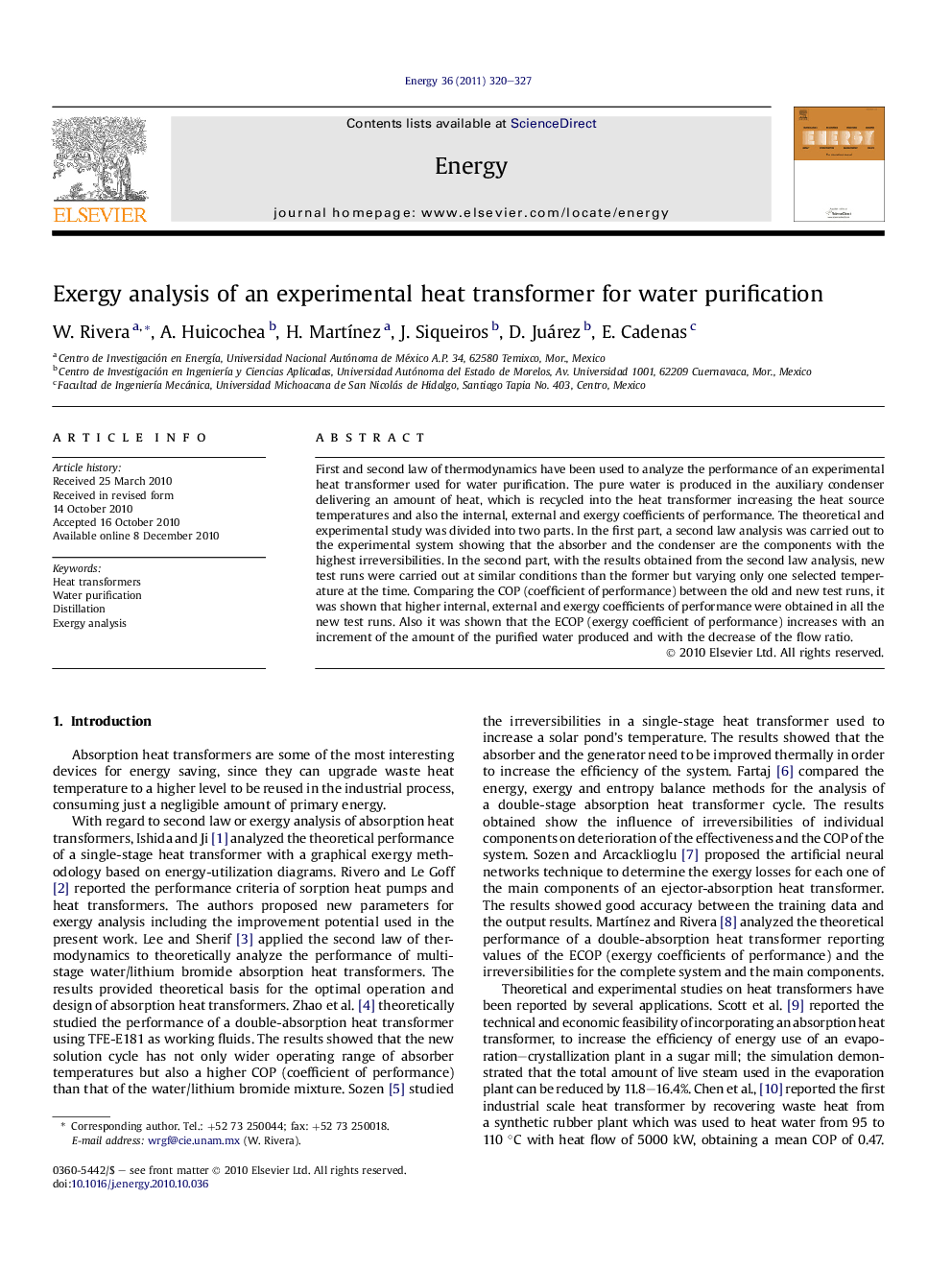| Article ID | Journal | Published Year | Pages | File Type |
|---|---|---|---|---|
| 1734766 | Energy | 2011 | 8 Pages |
First and second law of thermodynamics have been used to analyze the performance of an experimental heat transformer used for water purification. The pure water is produced in the auxiliary condenser delivering an amount of heat, which is recycled into the heat transformer increasing the heat source temperatures and also the internal, external and exergy coefficients of performance. The theoretical and experimental study was divided into two parts. In the first part, a second law analysis was carried out to the experimental system showing that the absorber and the condenser are the components with the highest irreversibilities. In the second part, with the results obtained from the second law analysis, new test runs were carried out at similar conditions than the former but varying only one selected temperature at the time. Comparing the COP (coefficient of performance) between the old and new test runs, it was shown that higher internal, external and exergy coefficients of performance were obtained in all the new test runs. Also it was shown that the ECOP (exergy coefficient of performance) increases with an increment of the amount of the purified water produced and with the decrease of the flow ratio.
Research highlights► By the first time an experimental results of a heat transformer for water purification with heat recycling has been presented. ► An exergy analysis has been carried out in order to identify the irreversibilities in the main components of the system. ► With the results obtained of the second law analysis new experimental test runs were carried out minimizing the system irreversibilities and furthermore increasing the system efficiency.
